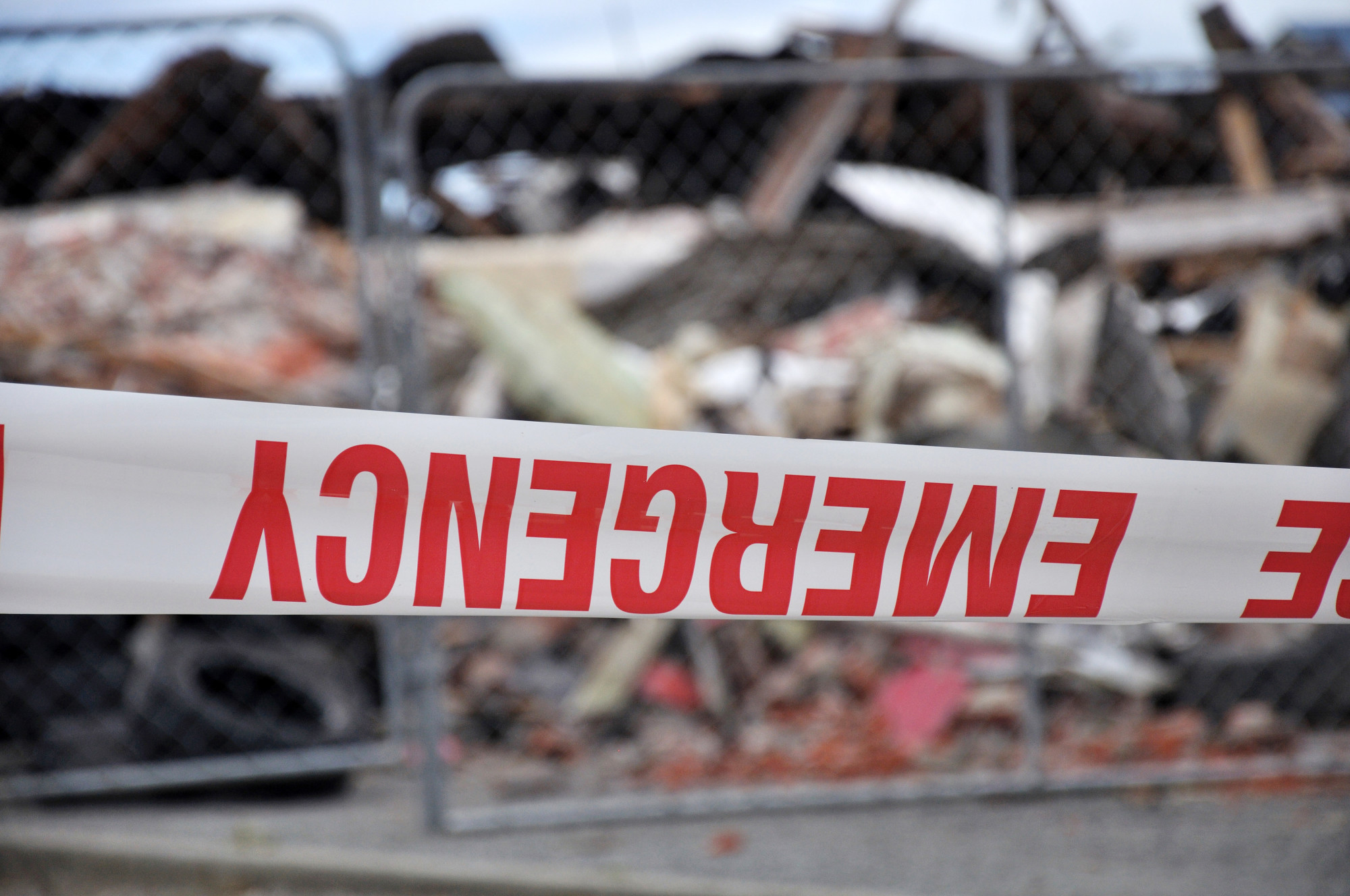
Emergency tape stretched in front of wreckage from the 6.4 earthquake in Christchurch, South Island, New Zealand, 22-2-2011
Every year, natural disasters affect nearly 160 million individuals around the world.
Preparing for a natural disaster is stressful enough when you’re just thinking about yourself and your family.
How are you supposed to prepare for a natural disaster for your business, though?
Let’s check out what you need to know about natural disaster survival for businesses.
Perform a Risk Assessment of Your Company
The types of natural risks you are most likely to face depends on the nature of your business and its location.
It’s important that you make a plan for each type of risk so that you can prepare for a natural disaster before it strikes. In some places, you might be more likely to have issues with flooding, where an earthquake might be more likely in others.
Come Up With a Business Safety Plan
When it comes to any natural disaster, the most important thing is protecting human life. Your business should have an emergency evacuation plan and a means of accounting for all of your employees should a disaster occur.
It’s not enough to just have a plan. Your employees need to know this plan like the back of their hand. Host practice drills and make sure everyone knows a designated spot where you will all meet up.
Create an Emergency Operations Plan
When a natural disaster strikes, everything changes. You’ll need to come up with a business operations plan in the case of an emergency.
Make a plan that outlines the leadership structure in case of an emergency. You’ll also need to determine how business will continue if your physical space has been damaged by the diaster. You might want to consider if employees would be able to transition to remote work temporarily.
As a part of general workplace safety, you’ll want to make sure your business has emergency kits that are fully stocked. It’s important that they are ready to go and that all of your employees know exactly where they’re located.
If a natural disaster compromises power at your business, you’ll probably wish you’d invested in a generator ahead of time. Check out these 3 phase generators that could supply you with a reliable source of power.
Back Up Your Data
Whether or not you’re expecting a natural disaster, you should regularly be backing up your data. Do what you can to move your records onto the cloud. If you’re going to be storing your backed-up data on hard drives, make sure to not keep them in the same physical location as the computer.
Remember Your Supply Chain Risk Management
You’ll want to review your contracts with suppliers and vendors to see what you are contractually obligated to do. If there were an emergency and you were unable to fulfill your duties, what happens?
Communicate with your vendors and suppliers and make sure you understand what the contracts say. If there isn’t a clause about emergency procedures, consider adding one into your contracts.
Document Your Assets
If a natural disaster strikes, you’ll likely be dealing with an insurance claim. Make sure you have all the documents you could ever need. It’s unlikely that you have every receipt for every object in your place of business, but taking photos can serve as proof for what was lost in the disaster.
Budget For Payroll Without Revenue
It can be a good idea to set aside a cash reserve in case of an emergency. This can allow you to get back up and running faster so that you can start producing an income again.
Discuss Your Coverage With an Insurance Advisor
One of the most important things you can do to prepare for a natural disaster is to make sure you fully understand what is and isn’t covered by your insurance claim. Make sure that the coverage limits are high enough to cover fully replacing your business if necessary.
It’s also important to know that many standard policies don’t cover certain types of disasters. If your business is in a flood prone area, don’t get caught without flood insurance after a storn.
Come Up With a Communications Plan
Communication is a key part of natural disaster safety. You’ll need to come up with a way to stay in contact with your customers, your employees, and your clients.
Review Regulatory Requirements
It’s possible that there are industry or government requirements that dictate how you need to dispose of hazardous material. You’ll also need to make sure that any repairs made to your building are up to code.
You might be required to have an emergency procedure that has been reviewed by a professional engineer or includes certain variables.
If you don’t follow the required regulations, your business could be in a really tough spot when disaster strikes. It’s important to stay up to date with changes in your industry’s regulations and that you’re complying with all government and business regulations.
Natural Disaster Survival: Planning Is Everything
When it comes to anticipating natural disasters and their impact on your business, it’s best to follow the old saying “hope for the best but plan for the worst.” The best thing that could happen is that you have an impeccable business operations and workplace safety plan in place that you never have to execute. The difference between a natural disaster being an unfortunate event vs a tragedy is how well you planned ahead of time.
Did you find this article about natural disaster survival helpful? If so, be sure to check out the rest of our blog for more informative and interesting articles!